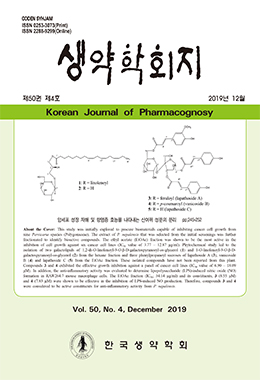KCI 등재
SCIE
SCOPUS
스코폴라민으로 유도한 기억력 장애 동물모델에서 명자나무 (Chaenomeles speciose Nakai) 과실 추출물의 효과
Effects of Chaenomeles speciose Nakai on Scopolamine Induced Memory Impaired Mouse Model
한국생약학회
2019.12
* 발행 기관의 요청으로 이용이 불가한 자료입니다.


